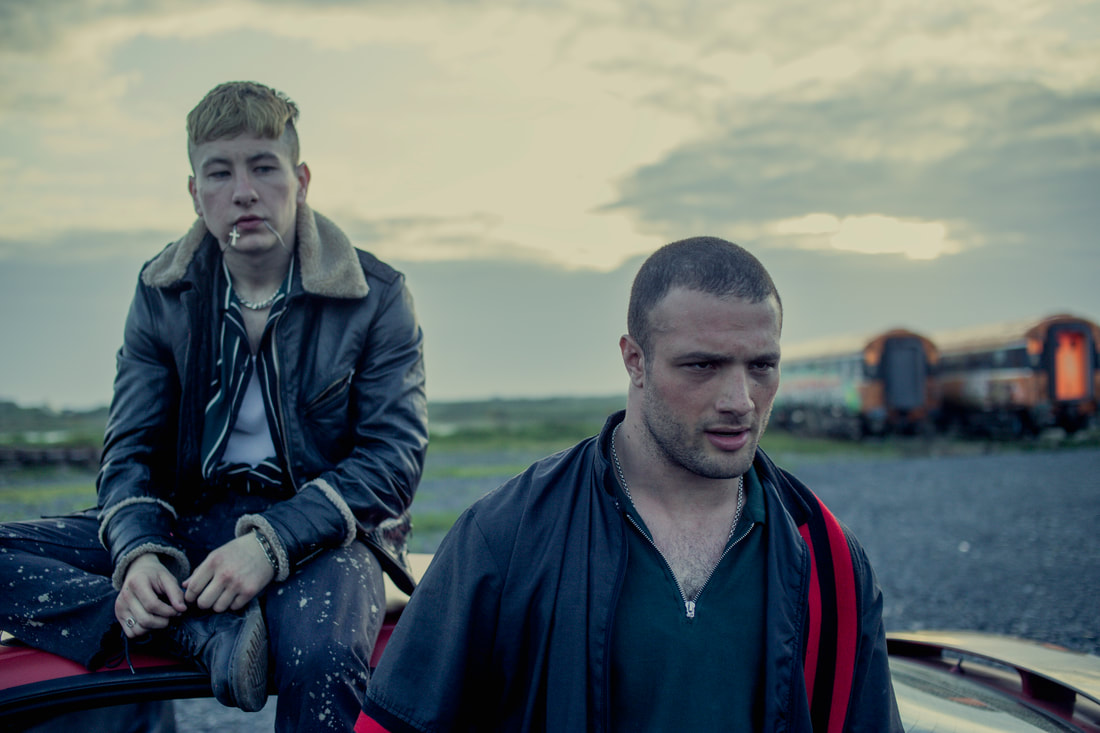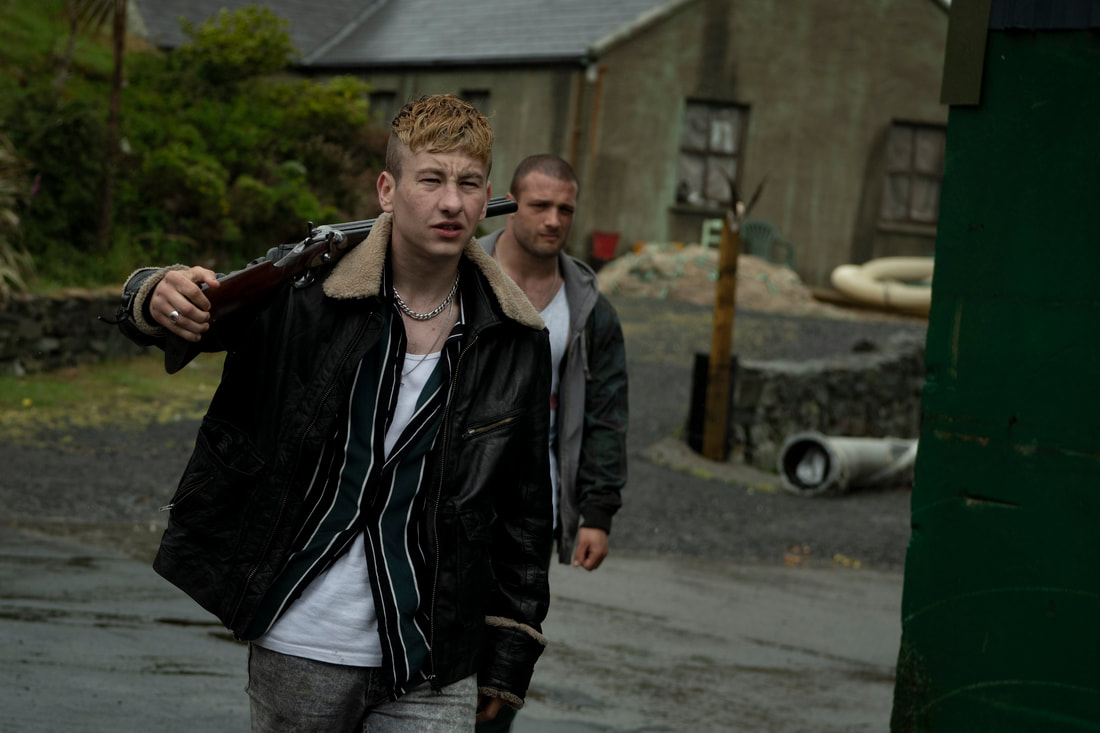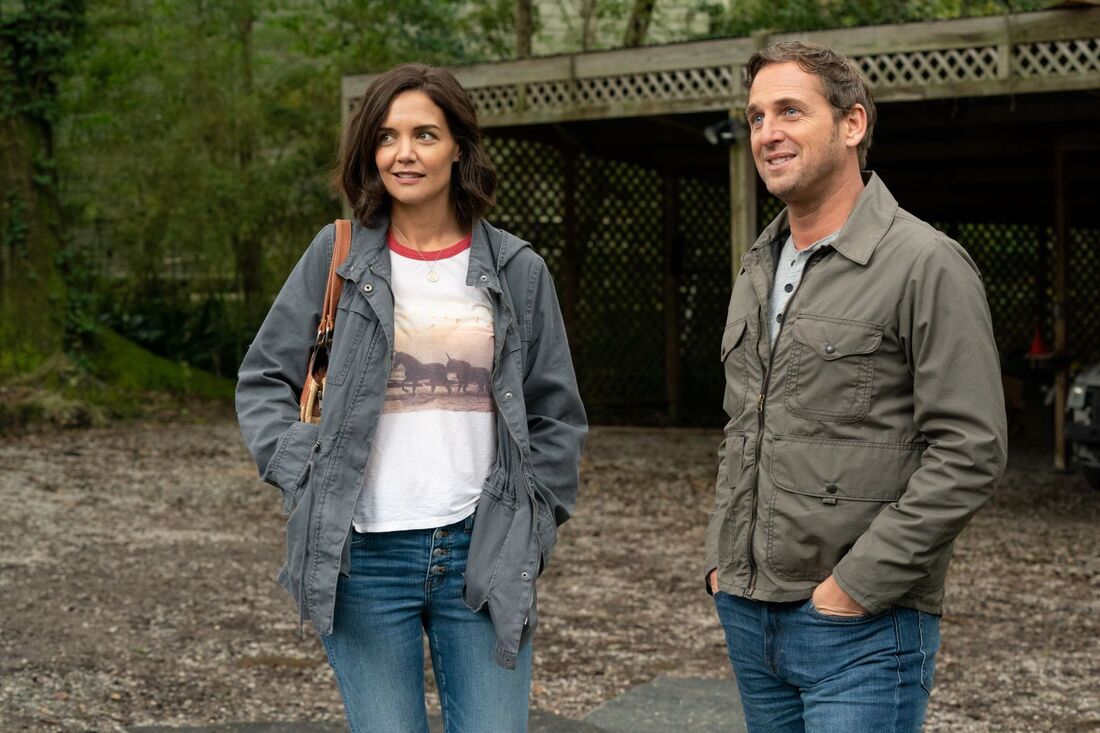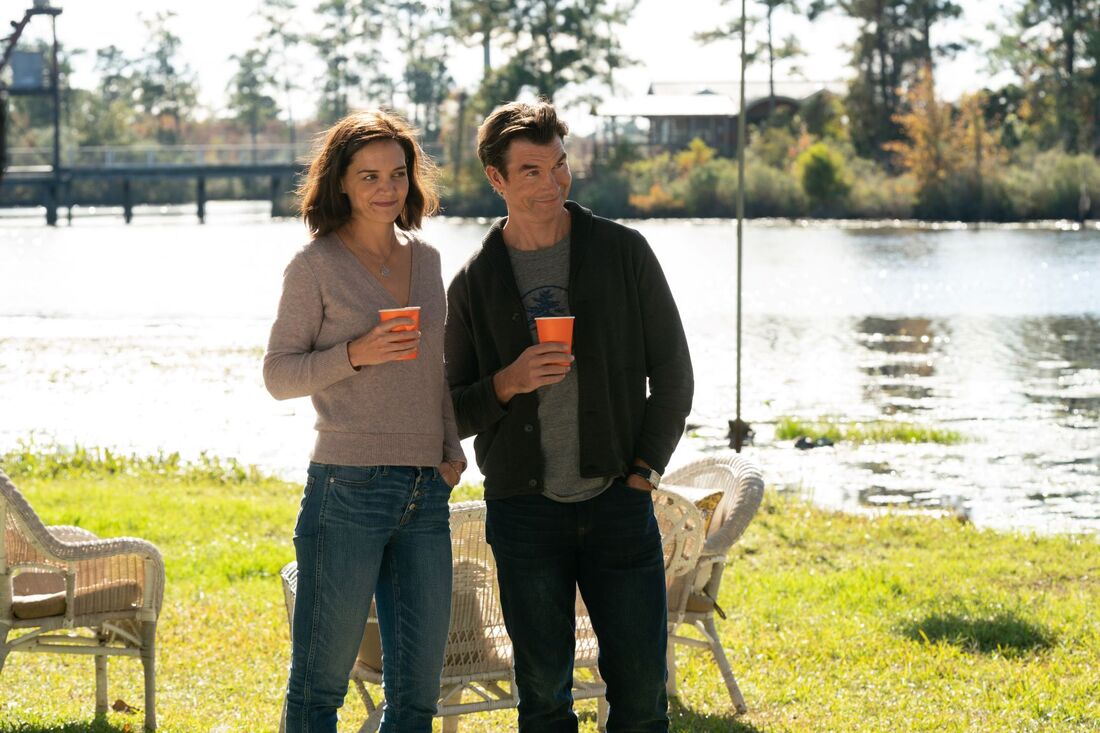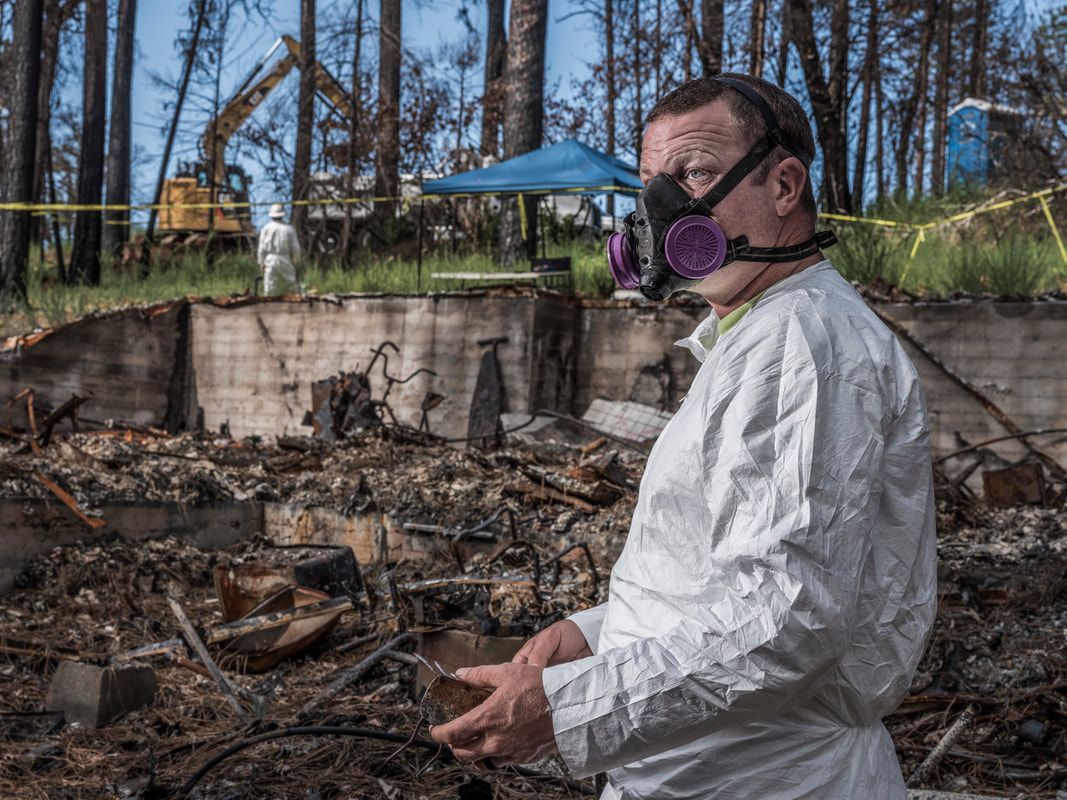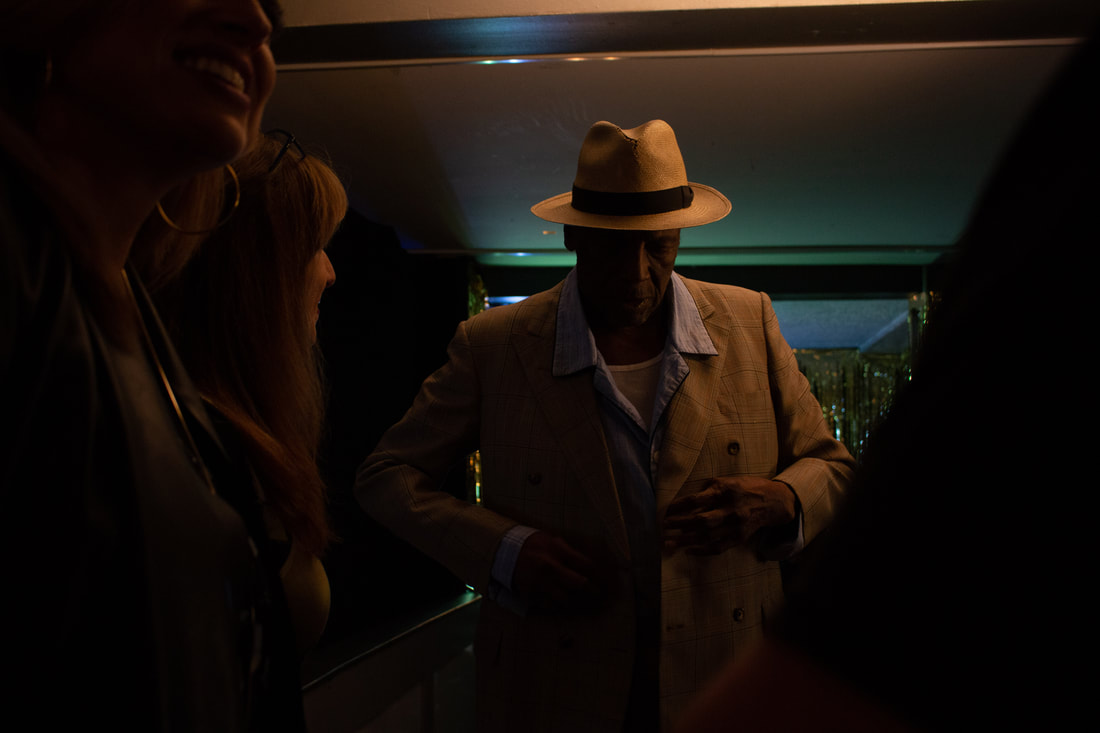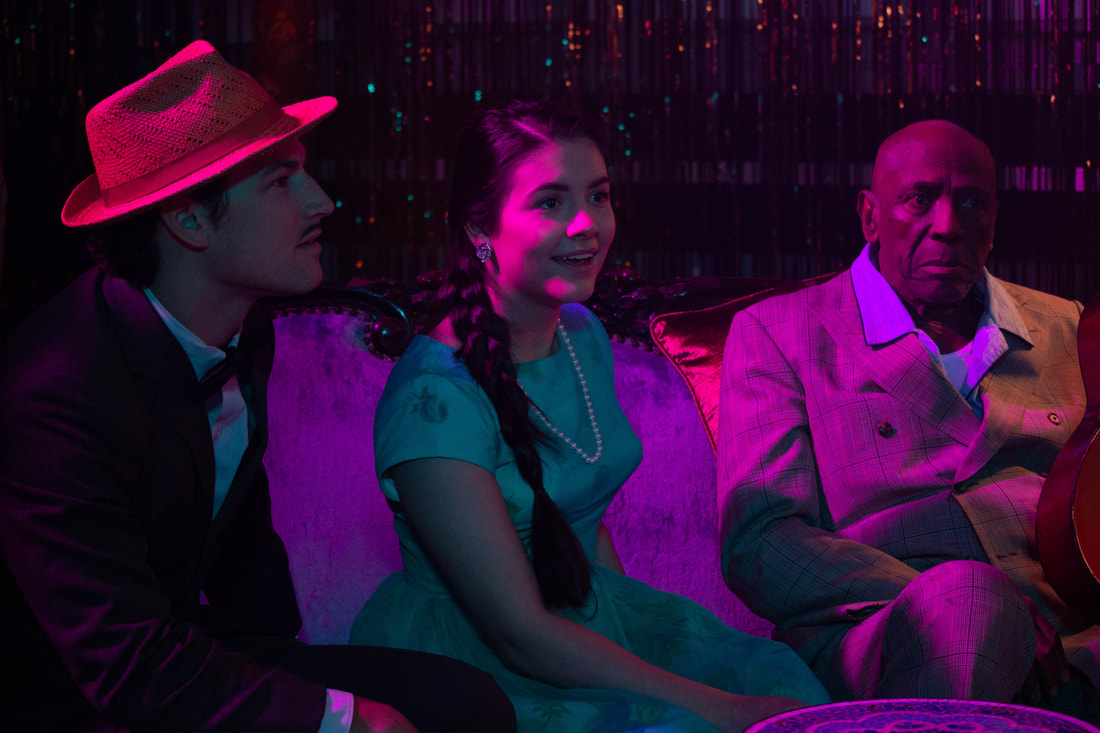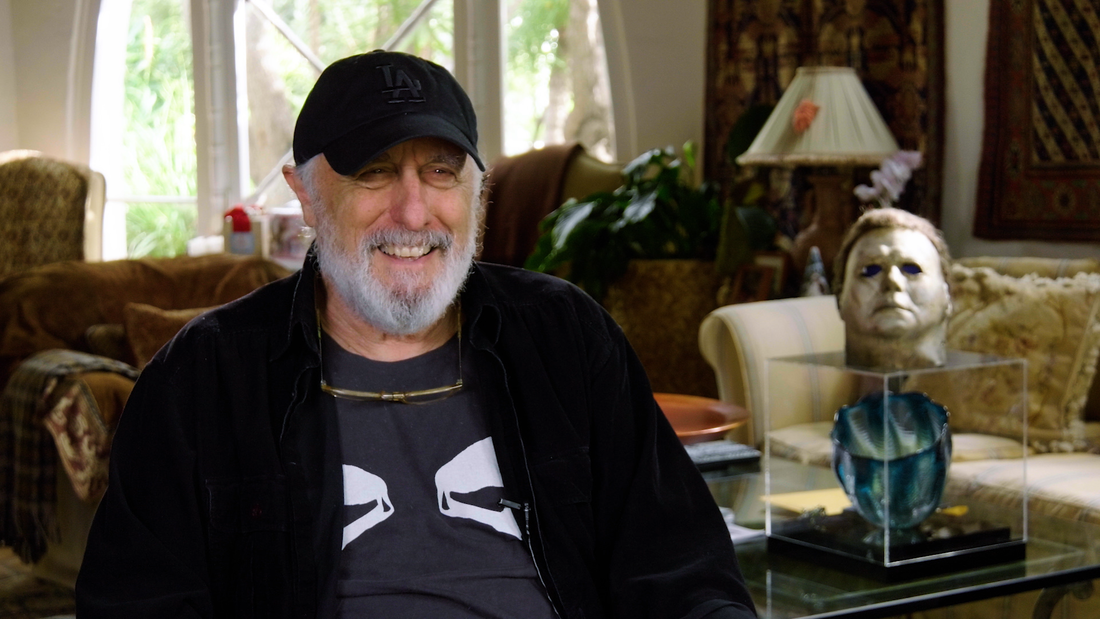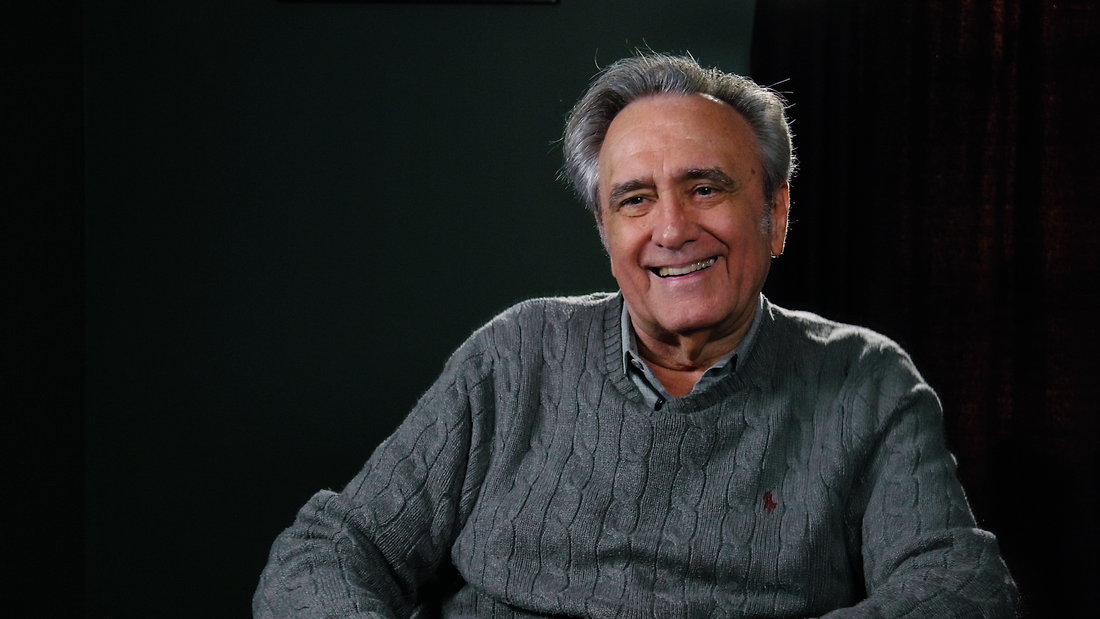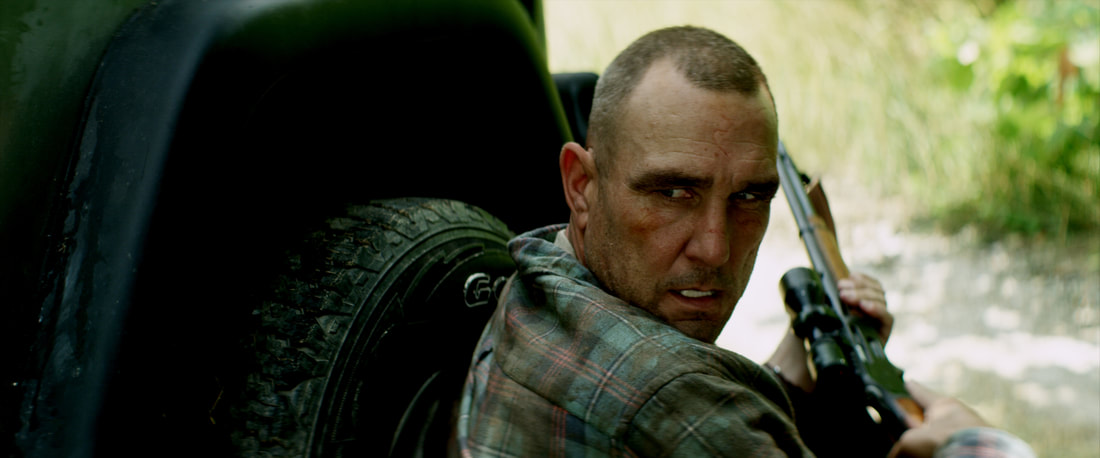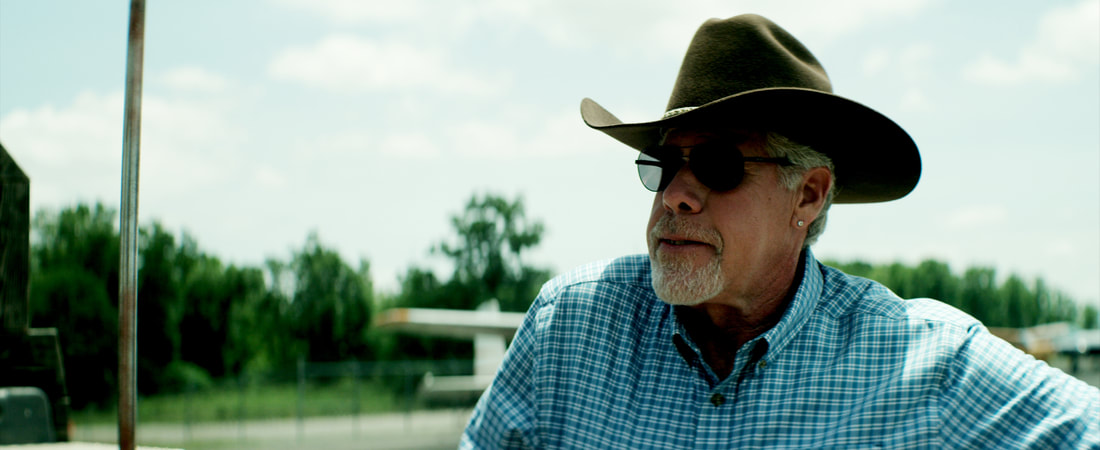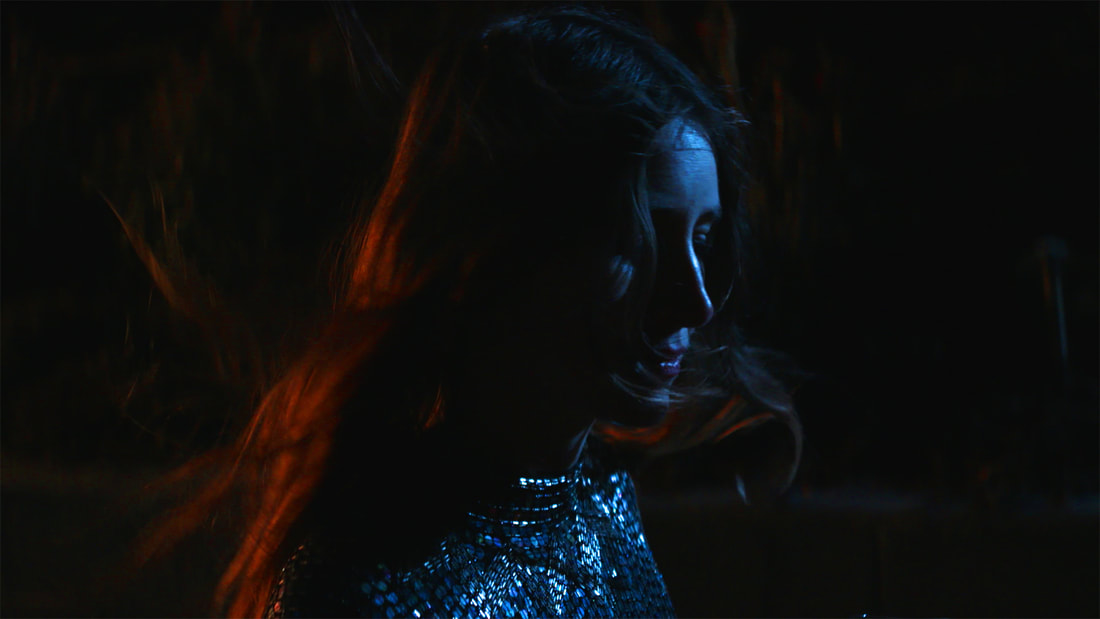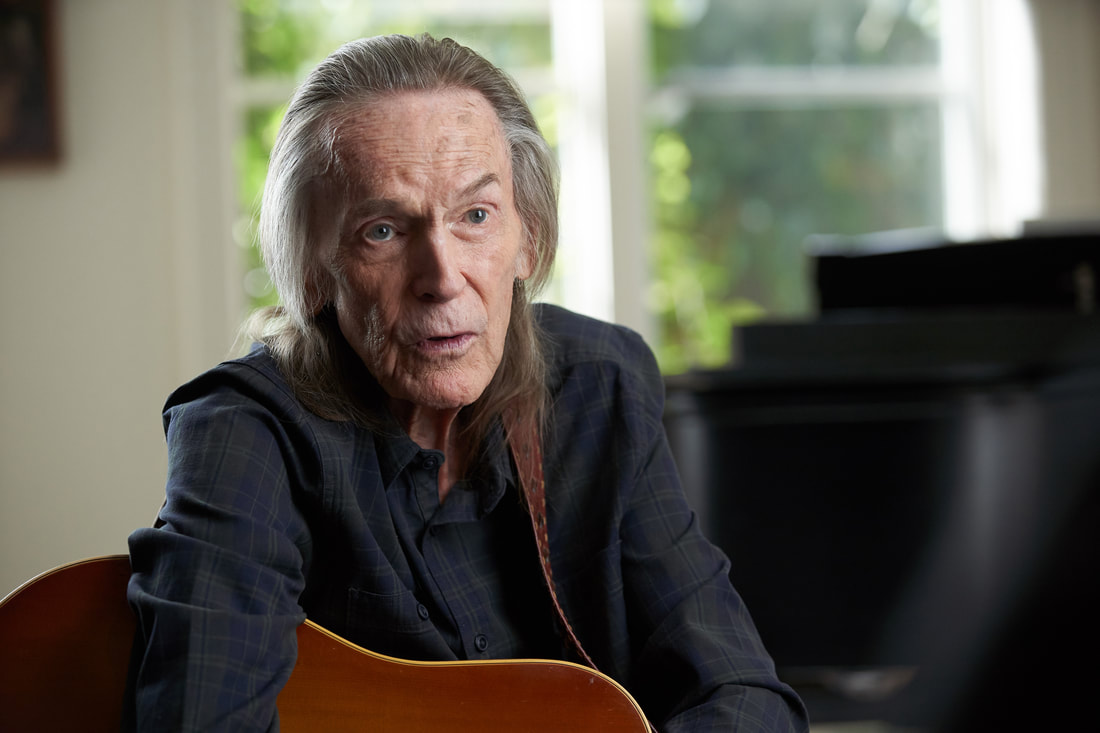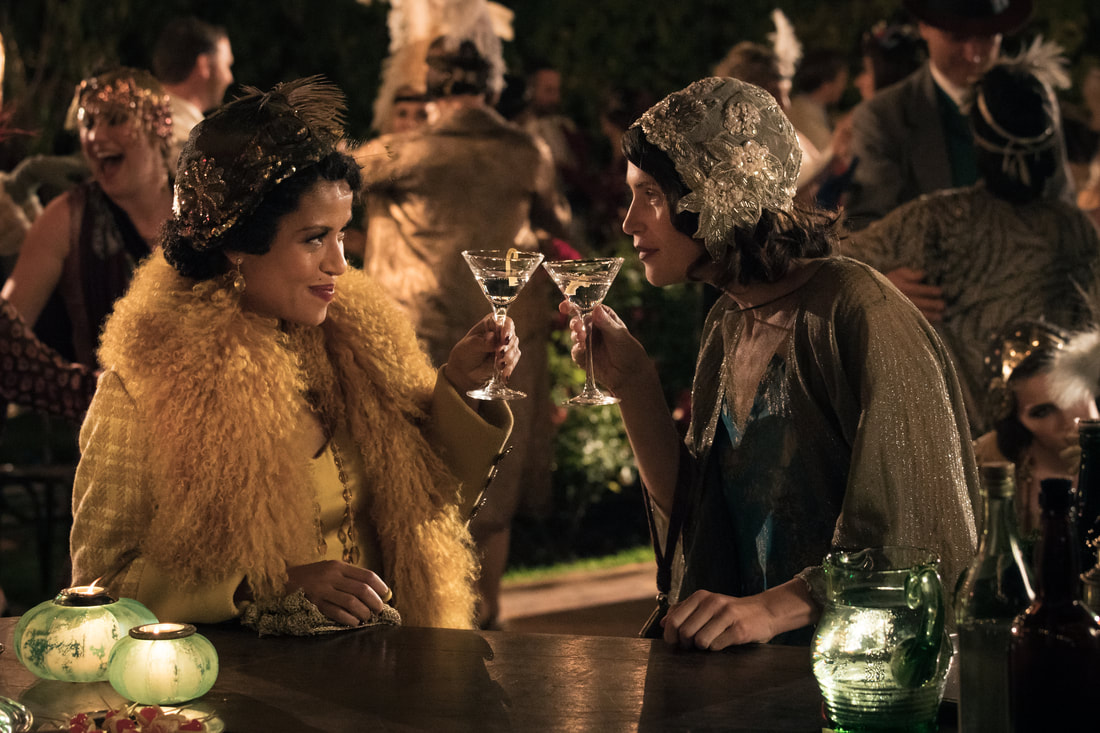|
Review by Sean Boelman
Hoping to bring a sense of humanity to the often cold crime thriller genre, Nick Rowland’s feature debut The Shadow of Violence is a lot more complex than many of the films from which it draws inspiration. And even though the movie doesn’t quite stick the landing, it manages to be a surprisingly strong and powerful watch.
The film follows a devoted enforcer of a drug dealer as he finds himself torn between his orders and his desire to be a better father. While the idea of a criminal growing a conscience and starting to resent their life of crime is nothing new, Joseph Murtaugh’s script brings a uniquely empathetic touch to these tropes. When the movie is more focused on its characters, it is thoroughly effective. The story involving the protagonist’s relationship with his special needs son is well-written and often heartbreaking, but is often eschewed in favor of the more traditionally-appealing action-oriented elements of the story. Although indie darling Barry Keoghan may be the higher-profile of the two stars (and he is excellent here), it is Cosmo Jarvis who runs the show as the protagonist. Jarvis gives a performance that is uncharacteristically vulnerable for the genre, taking the film a long way in terms of its emotional impact.
Unfortunately, heading into the final act, the movie turns into what essentially amounts to a “man on the run” thriller. Even though the finale does provide a satisfying conclusion to the protagonist’s emotional arc, it leaves something to be desired in regards to the other characters, particularly Keoghan’s.
As is the case with most thrillers like this, the main message here is that crime doesn’t pay, and the title makes that abundantly clear. (The more symbolic and arguably better original title "Calm With Horses" was changed for release, perhaps because of its ambiguity.) Still, Murtaugh handles these themes in a natural way without feeling didactic. Additionally, Rowland shows a lot of talent behind the camera, bringing a unique visual style to the film. One expects brutality out of movies like this, and there are some shocking sequences of violence, but Rowland is much more concerned with creating an atmosphere conducive to suspense and sympathy, these rough moments only serving as a piece in the bigger puzzle. Most of the issues with The Shadow of Violence lie within its script, but a strong cast and excellent direction are able to compensate for the material’s shortcomings. It isn’t often that audiences get a heartfelt crime drama like this. The Shadow of Violence opens in theaters on July 31. Rating: 3/5
0 Comments
Review by Sean Boelman
Inspired by the best-selling self-help book by Rhonda Byrne (itself based on a documentary), The Secret: Dare to Dream is unsurprisingly one of the most inexplicable melodramas in recent memory. Still, despite a script that is full of conveniences and contrivances, a committed cast and a positive message make this film better than expected, if only slightly.
The movie follows a widowed mother who, struggling to make ends meet for her family, meets a stranger who hopes to change her outlook on life for the better. Like many other faith-adjacent films, the story here is convoluted, and even if it is well-meaning, the message is so lacking in subtlety that it almost gets lost in the shuffle. Perhaps the most frustrating issue with the movie is that it is simply too long. For a film that is essentially one big philosophical diatribe, there is simply no reason to justify this being over an hour and forty-five minutes in length. There is a lot of repetition and redundancy that could have been cut to keep this at a lean ninety minutes. Visually, the movie is about as would be expected, with a lot of oversaturation and general cheesiness. There are some moments in the film that are outright laughable, particularly the end credits sequence that manages to be the most ridiculous part of a movie that feels pretty absurd in general.
Of course, a great deal of effort is put into making the message — the eponymous secret — known to the audience. That “secret” (if one can even call it that) won’t be a surprise to viewers if they are familiar with the source material, and while the literal approach to the movie’s ideas may be a bit far-fetched, the overall spirit is pretty admirable.
The film also does a solid job with its character development. Apart from a romantic subplot that is less than satisfying, the protagonist has a rather compelling arc. The portion of the movie exploring her relationship with her children is particularly strong, to the point one almost wishes it had gotten more of the runtime. The cast here is also a lot better than one would expect given the typically low quality of the genre. Katie Holmes, Josh Lucas, and Jerry O’Connell all give committed performances, and even if the sometimes maudlin material holds them back, they all do enough to earnestly sell their portion of the film. The target audience of The Secret: Dare to Dream will eat it up, and others may be surprised by the fact that it isn’t terrible. Despite it being hard to buy into some of the movie’s fantasies, there is definite merit here as a way of uplifting viewers. The Secret: Dare to Dream hits VOD on July 31. Rating: 2.5/5
Review by Sean Boelman
Ron Howard is of the group of directors from the era of spectacle that tend to deliver entertaining but safe studio fare, but in recent years, he has found himself doing some exciting things with documentaries. His newest film, Rebuilding Paradise, is equal parts cinematic and emotional, one of the most riveting documentaries of the year so far.
The movie takes a look at the community of Paradise, California as they deal with the effects of the destructive wildfires that devastated the West in 2018. A big part of what makes this stand out from other documentaries about wildfires is that it comes from a human angle rather than a heroic or ecological one. The things that the Paradise community went through are absolutely horrible, but the film offers an important reminder that it is not the place that defines a community — it is the people. Even though the loss of property may be heartbreaking and life-altering, the value of human life is priceless. Those moments in the movie which explore the more tragic of the consequences of the fires are quite affecting. In interviews, some of the survivors talk about their friends and family members who weren’t as lucky as them, clearly still dealing with the loss of part of their lives on top of the grief of the death of a loved one.
On the other end of the spectrum are the more thrilling sequences, in which people relate their experiences of trying to escape the fire before it was too late. Howard cuts in footage from the fires (presumably captured with cell phones by those fleeing the area) to make these scenes feel all the more urgent.
As a whole, Howard’s execution is excellent, the film meticulously shot and edited as to have the biggest impact possible. It’s a sleek documentary which is both a strength and a weakness. The level of polish does allow the movie to feel professional and widely accessible, but something a bit grittier could have brought more of a feeling of empathy. That said, perhaps the film’s biggest shortcoming is that it tries to do so much with such a short runtime. The movie is only an hour and thirty five minutes in length, and Howard seemingly interviewed as many people as he possibly could. The result is a solid depiction of the community as a whole, but it is missing a personal touch. With Rebuilding Paradise, Ron Howard took some already compelling material and turned it into a surprisingly cinematic story. Despite the fact that it may be a bit too clean-cut at times, it’s a compelling documentary by all means. Rebuilding Paradise hits theaters and virtual cinemas on July 31. A list of participating locations can be found here. Rating: 4.5/5
Review by Sean Boelman
The Trump Administration has taken some actions that have affected people in ways unimaginable to the average American, and the new documentary The Fight showcases the people who are working hard to remedy those effects. And while the film does sometimes get caught up in its attempts to be cinematic, it’s a powerful portrait of the good that still exists in the world.
The movie follows a group of ACLU lawyers as they set out on groundbreaking cases against the Trump Administration, one each in the area of voting rights, abortion rights, immigrant rights, and LGBTQ rights. A couple of these were considered “news-worthy” events, like the proposed inclusion of a citizenship question in the U.S. Census or a ban on transgender people serving in the military, but the more affecting are the ones dealing with more personal but still important issues. At just an hour and thirty-six minutes, there’s not a whole lot of time to flesh out each of the stories individually, which is admittedly a bit disappointing. There are some really interesting things happening in each of them, enough so that this could have made for a phenomenal miniseries, but in a feature-length format, everything feels a bit condensed. That said, all of these stories need to be told, and they work quite well together. The filmmakers cut between the four segments in a very natural way, using the statements made in one segment to accent and amplify the struggles of another. The use of juxtaposition here is absolutely phenomenal.
The main focus of this film is to encourage the amplification of unique and diverse voices, such as those heard in these cases. Unfortunately, this type of decision often disproportionately affects those who don’t have the means (whether financial or political) to be heard on a mass scale, and this movie is a small remedy for that.
However, it is almost disappointing that the film didn’t take more time with the victims involved in these cases. Watching the lawyers work their magic behind the scenes is certainly very compelling, and surprisingly entertaining, but by shifting the focus away from the people who are affected directly, it loses the emotional gut punch that it could have had. Additionally, the sleek style comes at a bit of a cost. On one hand, the rapid editing and energetic soundtrack draw the viewer into the story and heighten the intensity, but it also changes the tone significantly. Rather than an exposé of issues, this is a tale of triumph, and when those issues are still present, the movie likely would have been better off being a bit more serious. The Fight is a very entertaining documentary telling some magnificent stories, even if it doesn’t have the impact that it should. Still, as a glimpse into some of the great work the ACLU is doing, it’s essential viewing. The Fight hits theaters and VOD on July 30. Rating: 4/5
Review by Sean Boelman
Sometimes the star of a film can elevate something cute but insubstantial into something legitimately memorable, and that is the case with Louis Gossett Jr. in Sergio Navarretta’s drama The Cuban. Sweet and sentimental, this is a crowd-pleaser if there ever was one, overcoming its conventional script with good intentions.
The movie follows a kind-hearted but naive worker in a nursing home who befriends an elderly Cuban musician, helping with his condition and re-igniting her own love for music. Admittedly, the film is essentially one big manifestation of the dated “magical Negro” trope, but despite this, it comes from a place of earnestness rather than malice. The message of the movie is an expected one, that treating others with kindness and humanity is the best way to make oneself and others feel better. The sense of optimism that radiates throughout this film is infectious and unlikely to leave any but the coldest viewers without a smile on their face. Perhaps the movie’s greatest weakness is its character development. While the friendship between the two leads is extremely compelling, the audience is only given threads as to each of their stories on an individual level. It would have been nice to get more insight into the protagonist’s life with her Middle-Eastern family, for example.
For the eponymous musician, much of his characterization comes in the form of flashbacks (or more accurately, visions) that he experiences of his past while interacting with the protagonist. These brief glimpses are among some of the best moments in the film, leaving one wishing that they had been more prominent.
Gossett Jr.’s performance in the eponymous role is wonderful, even if he isn’t given much to do other than act senile. He brings a lot of empathy and subtlety to a character that easily could have been exaggerated and over-the-top. His chemistry with lead Ana Golja is excellent too and drives the movie quite well. Aesthetically, the movie does some interesting things with the fantasy elements of the story, but the main thing about the film that is impressive is its soundtrack. Featuring some great performances of iconic Cuban hits, this movie will have audiences tapping their toes along with the recognizable tunes. The Cuban offers plenty of adorable (if not completely surprising) moments. Most viewers will probably be drawn to this for its star, and Louis Gossett Jr. delivers, giving a memorable performance in a film that is otherwise just solid. The Cuban opens in theaters and virtual cinemas on July 31. Rating: 3/5
Review by Sean Boelman
Delivering what is arguably one of the most thorough discussions of the horror genre to ever hit the screen, David A. Weiner’s In Search of Darkness is a movie made by fans for fans. Perhaps a tad too long, but entirely captivating nevertheless, this is an absolute treat for anyone interested in the history of film’s most divisive genre.
In the documentary, Weiner takes a deep dive into the canon of horror from the 1980s, discussing how some of the most iconic movies from the era were made and why they had such an impact on the horror world and greater film community. While there are plenty of documentaries about this topic, the broad scope of the material and wealth of subjects interviewed make this stand out. Arguably the biggest issue with the documentary is its length. At a daunting nearly four and a half hours in length, the target audience will largely be limited to pre-existing horror cinephiles because of the time commitment it takes for a full watch. That said, the segmented structure, each movie being discussed getting ten minutes or less of time, is conducive to watching it in parts. That said, the documentary does a very good job of entertaining the audience. Some of the material will already be known to aficionados, like an exploration of the special effects involved in filming werewolf transformations, but the authentic and eager perspective from which the information is coming will be fascinating to viewers.
The main draw of the documentary will likely be the interviews that Weiner was able to conduct with some of the most prolific filmmakers in horror. Some of the best moments feature Joe Dante (Gremlins) giving some juicy tidbits, whether about a film that is his own or a production with which he was familiar.
There is definitely a significant focus here on special effects within the genre, allowing it to serve as an important reminder of the effort that goes into filmmaking from all parties. It’s rare to get a behind-the-scenes look like this that is both so in-depth and amusing, especially in regards to movies whose history is already so well-known. Weiner uses a combination of interviews, footage from the films in question, and archive materials to create his essay, and it’s quite effective. Weiner and editor Samuel Way have a phenomenal command of how to create a sense of rhythm, making the documentary feel much shorter than it is, and the music by Weary Pines adds another level of style to it. In Search of Darkness is very much rooted in niche appeal, but for those who fall within that niche, it’s definitely worth a watch. If nothing else, horror fans can use it as an opportunity to prepare their re-watch list for a Halloween that will otherwise be less exciting than usual. In Search of Darkness streams on Shudder beginning July 30. Rating: 3.5/5
Review by Sean Boelman
Although the Western and mob genres may seem like they are conducive to a syncretism, filmmaker Scott Wiper isn’t able to take advantage of that promise with his new thriller The Big Ugly. Mildly amusing, if a huge mess, the movie benefits from a strong cast, though they are underused by a mediocre script.
The film follows the enforcer of a London mob who is stationed in West Virginia to ensure that an oil deal goes according to plan when his girlfriend goes missing, sending him on a quest for revenge that results in relations between the two sides falling apart. This blend of tropes is initially intriguing, but soon loses much of its charm once it becomes clear that the movie won’t be doing anything particularly edgy. Much of the first hour plays out like a relatively straightforward but still mostly effective crime drama, only for the final act to head into more generic and underwhelming revenge territory. Ultimately, one of the biggest issues with the film is that there are so many moving parts in the first hour, and yet they are mostly abandoned and streamlined heading into the final thirty minutes. Another frustrating thing about the movie is that it doesn’t seem to trust the audience to stay invested in the story without carnage, hence why the final thirty minutes devolves into one big action sequence. Unfortunately, the beginning of the film (which is more character-driven) is far more compelling.
Perhaps the biggest strength of Wiper’s script is that the audience will connect with the protagonist. Granted, the villains are much more archetypal, but the hero of the story is given a legitimately compelling arc. Vinnie Jones’s lead performance goes a long way in making the character feel likable but not quite approachable.
The supporting cast is stacked with character actors, who range from enjoyable to watch to totally wasted. Arguably the biggest highlight is now-Emmy nominee Nicholas Braun in an integral sidekick role. Malcolm McDowell and Ron Perlman both have some good moments as the bosses of their respective gangs. Additionally, Wiper attempts to infuse the movie with style even if it doesn’t always work. It seems that Wiper had a hard time of settling on how he wanted his film to look in relation to time. Some sequences feel slick and modern, while others feel pulled straight out of a Western. This back-and-forth may incite some mild cinematic whiplash, but shows effort on Wiper’s part. The Big Ugly isn’t a great movie, but it is passable and has some very solid moments. Still, the strong cast assembled for the film can’t quite elevate this to be more than a forgettable genre mash-up. The Big Ugly hits VOD on July 31. Rating: 2.5/5
Review by Sean Boelman
Amy Seimetz’s She Dies Tomorrow will go down as one of the buzziest acquisitions out of a festival season that never happened, and it honestly couldn’t be more fitting. A darkly hilarious look at the role of paranoia within modern society, this ambitious and experimental comedy will creep under viewers’ skin and take hold of their attention.
The film tells the story of a young woman who thinks that she is dying the next day, spreading her sense of internal dread to those she encounters in a contagious way. With this, Seimetz has created an intensely funny high-concept thriller, structuring the movie as a series of chain reactions spanning a large ensemble of characters. The cast that Seimetz assembled for the film is absolutely phenomenal. Every actor is required a great deal of range, starting with a very emotive performance and turning into something purposefully monotonous. Higher-profile actors, such as Chris Messina, Josh Lucas, and Michelle Rodriguez are all great, but it is the lead, Kate Lyn Sheil, who steals the show. Admittedly, the characters are all pretty archetypal, but that almost seems to be Seimetz’s goal. Still, despite the fact that every character’s arc is ultimately the same, Seimetz is able to make us care about what is happening in their story. Typical conventions of characterization are largely abandoned here in favor of something more nuanced and effective.
There is a clearly repetitive nature to the movie, but it works well. What differentiates the different vignettes is the dialogue, which offers some brilliant commentary on different issues that plague the world today. Of course, everything eventually turns back into gloom-and-doom, as does so much real conversation.
In a world in which popular opinion is structured and defined by ideas that go “viral”, it is fascinating to see a film like this present the topic in an even more metaphorical light. Of course, the movie is as timely as ever as humanity deals with a literal virus, but the main purpose of the film seems to be to draw attention to the viral trends that are slowly destroying the population. Also impressive is that, even though the movie is mostly centered around conversations, Seimetz brings a brilliant stylistic flair to the project. Flashing multicolored lights are a common motif, and they give the film a very hypnotic quality. It’s frequently gorgeous to look at, which is all the more surprising given the dark subject matter. She Dies Tomorrow is a bizarre movie, but it’s an absolutely mind-blowing one at that. While this is probably best described as a niche title, audiences should still give this brilliant piece of art a shot, because if it connects, it will immediately catch you in its web. She Dies Tomorrow opens in theaters on July 31 and hits VOD on August 7. Rating: 5/5 GORDON LIGHTFOOT: IF YOU COULD READ MY MIND -- An Insightful Portrait of an Underappreciated Artist7/28/2020
Review by Sean Boelman
The work of songwriters often goes unrecognized, those who perform their lyrics often getting a majority of the credit. The new documentary Gordon Lightfoot: If You Could Read My Mind hopes to remedy that, though, bringing light to a brilliant singer-songwriter whose work would later be popularized by other artists.
In the film, Lightfoot reflects back on his own life and career, discussing some of the things that influenced him and his music. Like any biography of a musician, the movie leans heavily on the viewer appreciating the subject’s accomplishments for the story to resonate. However, since Lightfoot has been such a prolific musician, it will be hard not to admire what he has done. Perhaps the most interesting thing about this documentary is that it goes very deep into Lightfoot’s personal life and his experiences that shaped what he had to say through his art. The up-close-and-personal interviews that the filmmakers conducted with Lightfoot do an excellent job of providing insight into who he was as both a creator and a person. More so than most other films that explore art as an extension of oneself, this really captures the interplay between one’s experiences and one’s creations. There are a few sequences in the movie in which critics, peers, and Lightfoot himself are discussing some of his most famous songs and their meaning, providing some context that will undoubtedly be unknown to most viewers.
At right around an hour and thirty minutes in length, the film still manages to do quite a bit despite its relatively short runtime. The movie packs a surprisingly solid emotional punch thanks to its exploration of some of Lightfoot’s weightier struggles, which also creates a stronger connection between the subject and the audience.
The story is told with a combination of archive materials and modern-day interviews, and while it is a rather simple set-up, it is able to convey its information in a compelling and entertaining way. Much like most music documentaries, this is a crowd-pleaser, especially for those who have a passion for great songs. If the film is missing something, it is performance footage of Lightfoot. Understandably, the focus here is more on his talent as a songwriter rather than a singer, as it is other artists’ performances of his songs that are more well-known. That said, the performances the audience does get to hear from Lightfoot are packed with emotion, leaving one wanting more. Gordon Lightfoot: If You Could Read My Mind is a surprisingly touching documentary thanks to the personal exploration it offers of its subject. Music aficionados certainly won’t want to miss this one. Gordon Lightfoot: If You Could Read My Mind screens online in partnership with indie theaters beginning July 29. A list of participating locations can be found here. Rating: 4/5
Review by Sean Boelman
Wartime romances are typically a very sentimental genre, and writer-director Jessica Swale’s feature debut Summerland is no exception to that rule. Sweet but disappointingly safe, this has a wonderful cast and the potential to be so much more, but too often settles for crowd-pleasing tropes to be particularly memorable.
The film follows a woman as she opens her home to a young evacuee from London, soon discovering that they have a deeper connection than she had initially thought. It’s a story that is much more simple and predictable than it seems to want to acknowledge, relying on a not-so-unexpected twist to get emotion out of the audience. This evacuee storyline pales in comparison to the much more compelling portion of the movie, a lesbian romance taking place through the protagonist’s flashbacks. Yet by relegating this storyline to the back burner, Swale loses a lot of the earnest sympathy that the character would have earned from the more likable aspects of her personality. Instead, Swale hopes that the character earns the audience’s love through the growth of heart she shows. The issue is that this arc is almost all confined to the third act, leaving two-thirds of the film with the protagonist as an inhospitable hermit. Of course, anyone with experience in the genre knows that she will break out of her misanthropic ways, but it takes a lot of patience to get to that point.
That said, Gemma Arterton’s performance in the lead role is quite solid. Even though it’s disappointing to see her being typecast in this same type of role again and again, she is at least able to pull some of the humanity out of the material. Young actor Lucas Wilson is great in his role, showing a lot of charm and great chemistry with Arterton. Gugu Mbatha-Raw and Tom Courtneay are also excellent (as expected), but are wasted in small roles.
The idea of imagination and hope radiates through the movie, and this is arguably its biggest waste of potential. There are some legitimately interesting things happening in the script, but many of them, including the eponymous idea of “Summerland”, are left disappointingly underdeveloped as good ideas that are never explored. It’s also disappointing that the film didn’t do more with these fantasy aspects in a visual sense. While the beautiful English countryside provides some magnificent background scenery, there’s not a whole lot of inventiveness to Swale’s approach. The movie is certainly competent, and she has a clearly good eye — it just would have been nice to see her take a few more risks. Had Summerland not been afraid to take some risks with its edgier material, it could have been absolutely wonderful. Unfortunately, as it is now, it’s a passable drama with solid performances and a penchant for taking the easy way out. Summerland hits theaters and VOD on July 31. Rating: 2.5/5 |
Archives
July 2024
Authors
All
|
|
|
disappointment media
Dedicated to unique and diverse perspectives on cinema! |

